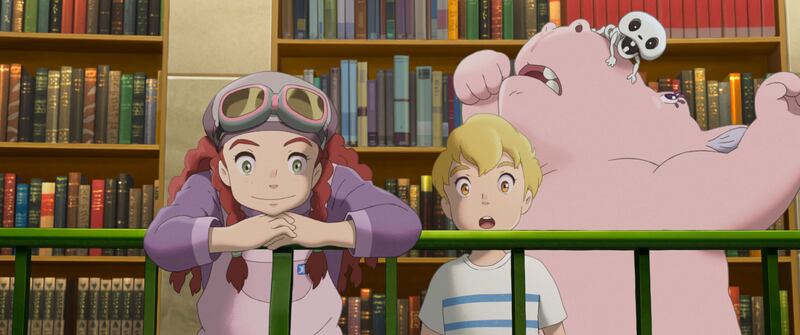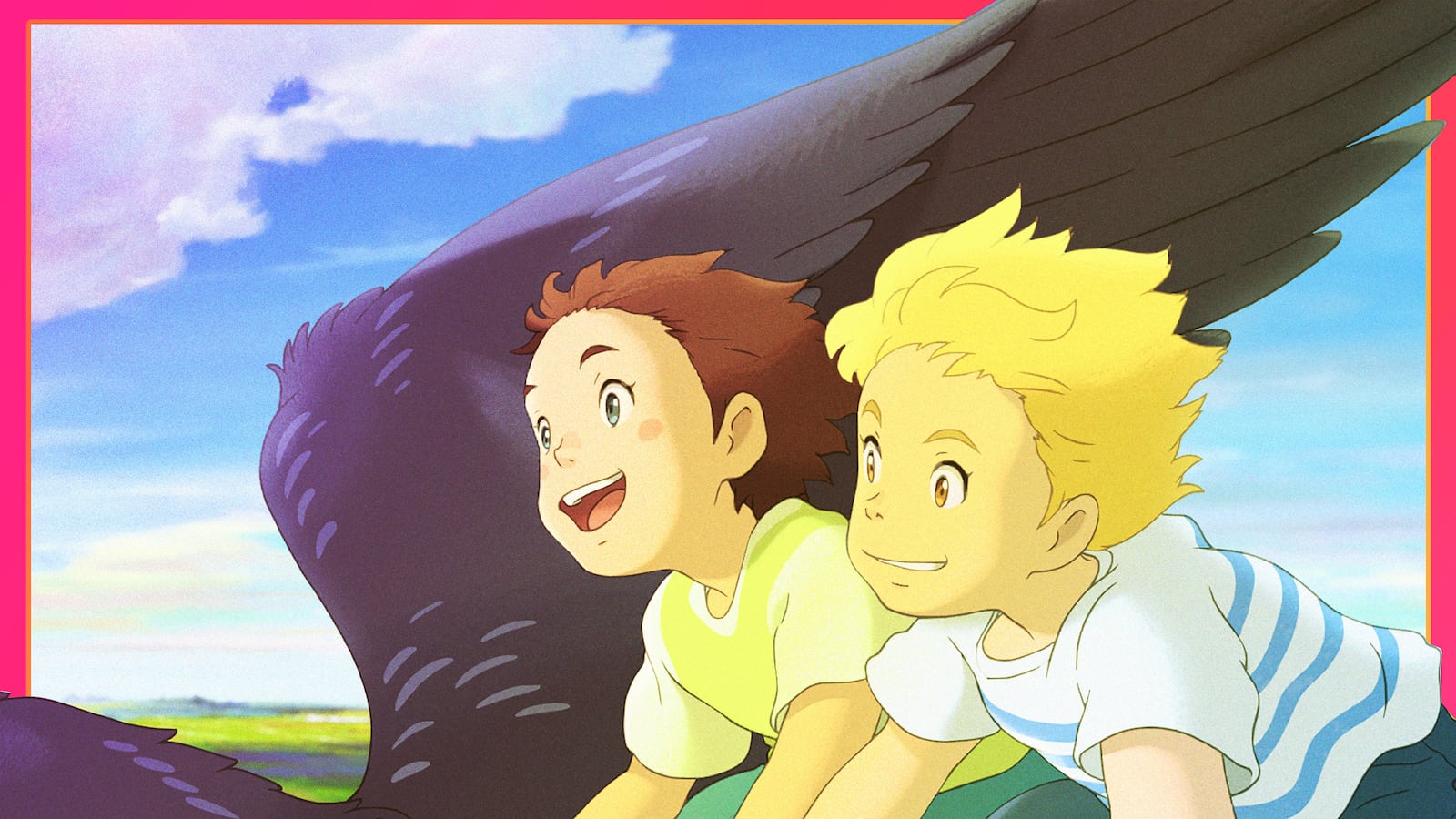With dazzling images bogged down by rules and explanations, The Imaginary becomes a frustrating experience. The Yoshiyuki Momose-directed, Studio Ponoc-produced animated adventure, now available on Netflix, is deeply moving at times, adapting the British children’s novel of the same name to tell a story from the perspective of an imaginary boy in danger of being forgotten. However, just as it approaches poignant moments, it swerves in too many muddled, plot-heavy directions to stick the emotional landing.
Opening with a scene of young Amanda Shuffleup (Rio Suzuki) and her secret companion Rudger (Kokoro Terada) soaring through the sky, The Imaginary sets a commendably quick pace. It yanks us through a wonderfully energetic daydream sequence, filled with shimmering constellations and rain falling upward, which soon gives way to the reality of Amanda’s attic bedroom.
Amanda’s mother Lizzie (Sakura Ando) is often distracted, as she tries to run her bookstore in a quaint town inspired by the English countryside. Amanda’s father, for reasons later revealed, is nowhere to be seen, and so the sprightly youngster spends time on her own—which is to say, in the company of the little blonde Rudger, whom no one else can see—in a reality colored with less vibrant hues than the ones her imagination conjures.
However, when the mysterious, mustachioed villain Mr. Bunting (Issey Ogata) pays her a visit—accompanied by his own imaginary companion, a ghost girl reminiscent of Japanese horror films—Rudger becomes endangered in a very real way, because Bunting can see him too. The film’s title, it turns out, isn’t an adjective, but a noun; “imaginaries” are, ironically, a real category of being in this universe, dreamt up by little kids for company or play, but they eventually fade if they’re forgotten, or if the kids are harmed in some irreparable way. This adds real-world weight to the story, since one possible path to hunting down Rudger happens to be hurting Amanda.

The Imaginary
NetflixHowever, when the story reaches a melancholy tipping point, and it seems like Rudger might cease to exist—a brief, metaphorical confrontation of death—the film opens up a whole new world within its fantasy realm, where forgotten or semi-forgotten imaginaries congregate in an enormous, dreamlike library. While this imbues the film with enormous visual possibilities (it features abstract gags galore, albeit ones only older viewers might appreciate), it also marks a shift in its priorities. Before long, viewers are pummeled over the head with an unending series of fictitious rules and guidelines these imaginaries must follow, as they weave in and out of other children’s imaginations too, rendering the movie’s fleeting mortality metaphor entirely moot.
There are hints of impactful moments to be found, like a brief pivot that brings into sharp, unyielding focus the idea that remembering the dead—and becoming a memory—is a blessing. But as Rudger and his new imaginary companions (a young girl and chipper hippopotamus) hop from daydream to daydream, always on the run from the villainous Bunting, the movie’s elegant metaphors about grief become subsumed by a barrage of far less interesting subplots. It’s a work of occasional magical surrealism that spends much of its runtime explaining its tricks, until the magic is lost.
Worse yet, while The Imaginary tries to build a narrative framework out of in-universe rules—where and when the imaginaries can travel, their limitations, and the risks therein—these seem to shift at random, making the drama of any given moment difficult to follow. However, Momose and his team ensure the movie is at least pleasing to the eye (just as it is to the ear; Agehasprings and Kenji Tamai’s score is whimsical and engrossing).

The Imaginary
NetflixThe combination of hand-drawn and computer animation warps space in interesting ways—a fitting approach to a realm outside reality—though this has the occasional downside of warping eyelines too. In some cases, the physical relationships between characters aren’t crystal clear, including when they’re meant to be looking at and to whom they’re speaking. However, when they fly through space (at times, literal outer space), the image flies by quickly enough that this issue doesn't matter.
The Imaginary is born from a wonderful gem of an idea: a retroactive look at the innocence of childhood through the lens of pure creation, and the way imagination intersects with (and softens the blow) of real-world harshness. Unfortunately, these emotional concepts end up shackled by an adherence to plot and ever-expanding lore as the primary driving force of what ought to be a simple, streamlined story of a child's coping mechanism in her father's absence, and as her mother pulls away.






